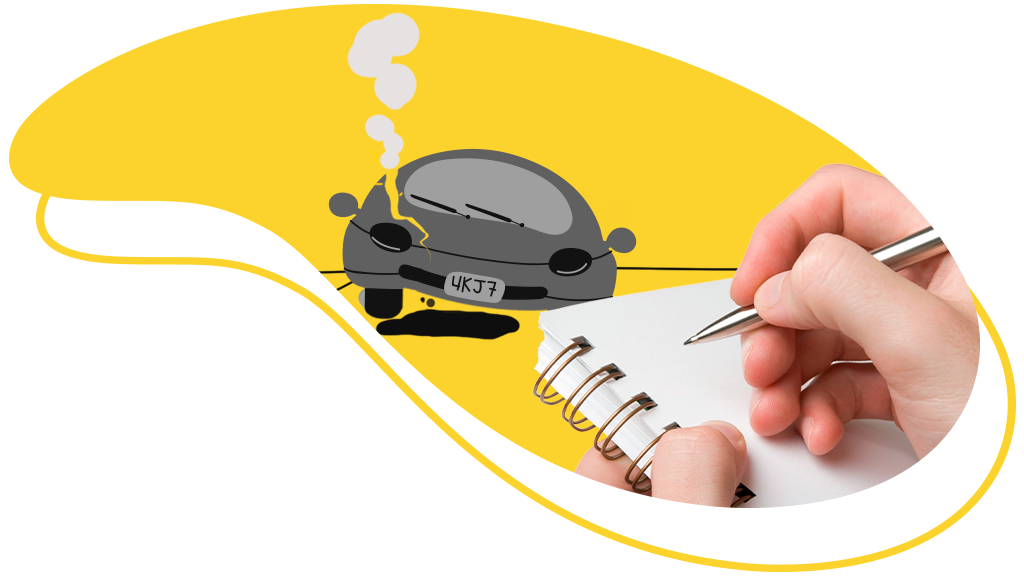You’ve probably heard the term Insurance Claim. An insurance claim, or a claim record is a call made to your insurance company requesting payment for a loss provided for in your policy.
Insurance is probably one of the only purchases we make in the hopes of never using. However, at times it may be necessary. It’s because we know the odds that we decide to take out insurance in the first place, isn’t it? And it is at these times that we need to know exactly what is covered, what we have to do and how to guarantee the contracted coverage.
The claim is validated by the insurer, and if approved, payment is issued to the insured (you, in this case) or to an approved interested party on behalf of the insured. All types of claims, damage to automobiles, replacement of a stolen laptop, medical bill payments, even death compensation are covered, depending on your policy and approved coverage.
How do I file a claim?
Here on the blog, we’ve already given tips on what to do when you crash your car and need to call the insurance, but do you know how to make claims for other insurance?
In your insurance policy, there is usually a section called “Conditions” where you find your policyholder obligations. It is there that you will find the instructions for making the claim for your insurance company. This may vary a little, but in general, the following action items are as follows:
- Immediately report the claim to your insurer or insurance agent;
- Provide your details: name, policy number, and the loss;
- Report details about the loss;
- Provide the names of any witnesses or persons who may have a claim against you;
- Submit documents, invoices, receipts and clues associated with the loss, such as police reports, photos, surveillance videos, license plates, whatever you think might help you;
Still, the insurer will send you a claim form which, by law, you must return within a certain number of days. Please review and complete carefully to avoid delaying claims payments if your loss is covered.
Tips for filing a claim
Although it is extremely important to know what to do in times of crisis, being prepared for the worst is essential.
Organize your documents
This advice is applicable to life as much as it is for insurance claims. Create a file to keep everything for your insurance policies: serial numbers, important receipts, evaluations and copies of policies.
Have these files scanned and stored in the cloud, or in a trusted location. And if you have the original physical documents, if possible, keep them in a safe place, one that is fire and flood proof.
Talk to your insurance agent
It is always a good idea to contact your agent for step-by-step guidance on each insurance you take out. In case something happens and you need to call the insurance, it can also help you decide what to do in a timely manner.
Although most policies require you to notify the insurer in the event of a claim, it is important to assess whether you should even make a claim in each situation. Claims can make your premium go up, multiple claims can interfere with your “score” as a customer, and the deductible can be worth more than the cost of repairs.
Evaluate repairs before authorizing them
It is very important that repairs are authorized by the insurance company, otherwise they may not be considered at the time of indemnification.
If any emergency repairs need to be done to ensure your safety or to prevent further damage, be sure to take pictures or videos beforehand and inform your insurance company.
Keep documents organized
Just like we outlined earlier, just as it is to have everything organized even before an accident, it is just as important to stay organized after the incident. Remember to keep all communications, notes, bills and receipts, including rental car or temporary accommodation; depending on your policy, these costs may be covered.
How will my claim be paid?
Did you follow all our tips, had your claim approved, paid the agreed deductible and now want to know how you can expect to receive the funds from the insurance company? As always, the answer will depend on the type of insurance you have, the type of claim, your insurance company, the state you live in and whether you have any type of financing linked to the insurance.
Car Insurance
If your car needs repair, your insurance company can pay you directly, to the repair shop, or depending on how everything was done, pay both parties. If your car is financed and declared a “complete loss”, the insurance will pay off the loan first and you will then keep the remaining amount.
Homeowners Insurance
If you have chosen current value coverage, you will receive the current value of your property, which is adjusted based on the market. If your policy covers the cost of replacing old items with new ones, you will generally have to purchase the items again, deliver receipts to the insurance company, and be reimbursed for the difference between the cash value of the old item and the cost of the replacement item. .
You may receive separate payments to repair the house, replace personal effects, and additional living expenses if you have to live elsewhere while the house is being renovated. If you have a mortgage, the lender is usually listed on your homeowner’s insurance. Payment for repairs can be made in your name and in the name of the lender, or it can go directly to the lender, who will keep it in an escrow account and release money for repairs as needed.
Life Insurance
The policy beneficiary will receive a payment, also called a death benefit, in the amount of insurance purchased by the deceased. Depending on the policy, the beneficiary can choose between receiving the entire amount at once or in installments, as if it were a pension. Of course, each case has its fiscal peculiarities, so it’s important to understand how each one works.
Will my insurance rates increase after a claim?
There are no hard and fast rules about rate increases. What one company forgives, another will not forget. Any claim can pose a risk to your rates and understanding your policy is the first step to protecting your portfolio.
If the claim is being made to pay for damage to the property that you caused, your fees will likely increase. However, if you are not the culprit, this may not happen. Damage caused by rain, or a car crash for which you were not responsible, will not influence your future rates.
However, if you have an excess of claims or speeding tickets, if natural disasters happen very often in your area or if your credit score is very low, your rates may change.
In the end, the key is to be responsible and take good care of your possessions. Let the insurance handle the rest!
Do claims affect my credit score?
Insurance claims, in principle, do not directly affect your credit score. However, if the claim has negative financial consequences, it may indirectly affect you.
If you have to pay a high deductible or higher insurance premiums it can make managing your other accounts more difficult, making other payments more difficult, which can have a significant negative impact on your credit score.
Calculate well before deciding whether you prefer a higher deductible to reduce the premium or whether you prefer a higher premium so that the unpredictable cost of the deductible is lower. One idea is to have a reserve worth the deductible, to ensure that your finances are not affected by using insurance.
Talk to Breezy Seguros!
If you are already part of the Breezy Seguros family, you already know that we provide complete assistance and are always at your disposal, both to clarify any doubts and to help you navigate these stressful situations.
If you are not yet part of our family, get a quote now or speak directly to a Breezy Seguros agent! We are ready to make your life easier!







